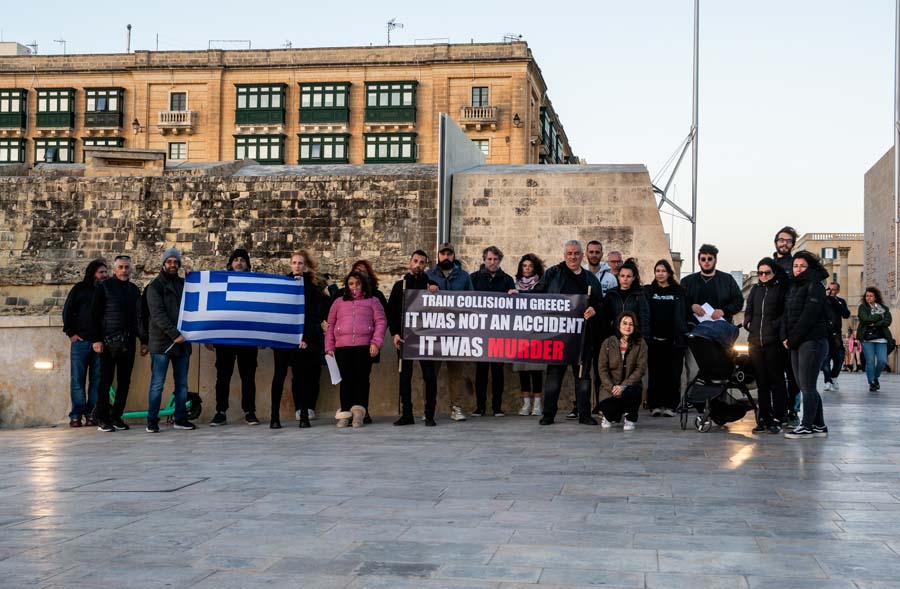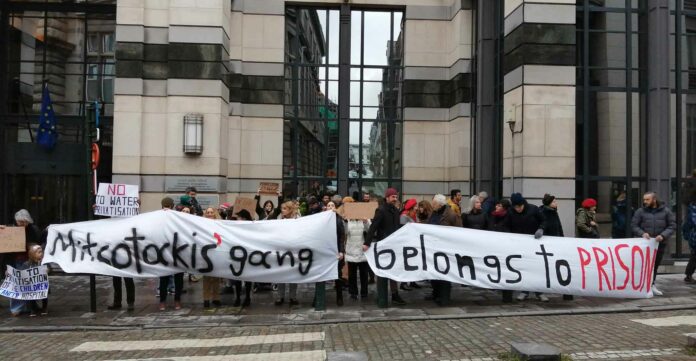Marina Kontara
The solidarity groups of Greek people living abroad have once again responded timely to the developments in Greece. As we have already reported, spontaneous mobilisations were organized in European cities, already during the weekend of March 4-5, aiming to show solidarity with the movement that arose after the crime at Tempi. Those actions’ purpose was also to make the facts known in those societies. In Munich, an action was organised at the Greek consulate on March 8, the day of the big strike in Greece, when huge demonstrations took place in over 70 cities.
Same as it had happened two years ago, as a reaction to the huge repression wave unleashed by the Greek right-wing government, again this time Greek groups abroad called for an immediate assembly online. The groups that participated in the assembly decided to coordinate actions at the Greek embassies or consulates in their cities over the weekend of March 11-12. Each city published its own call, but a joint press release will be issued.
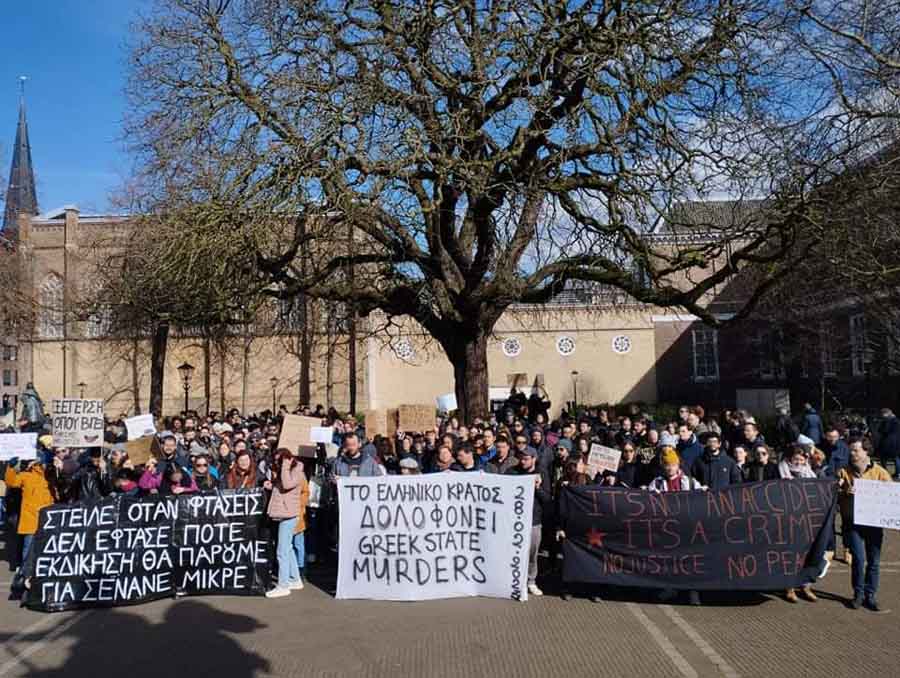
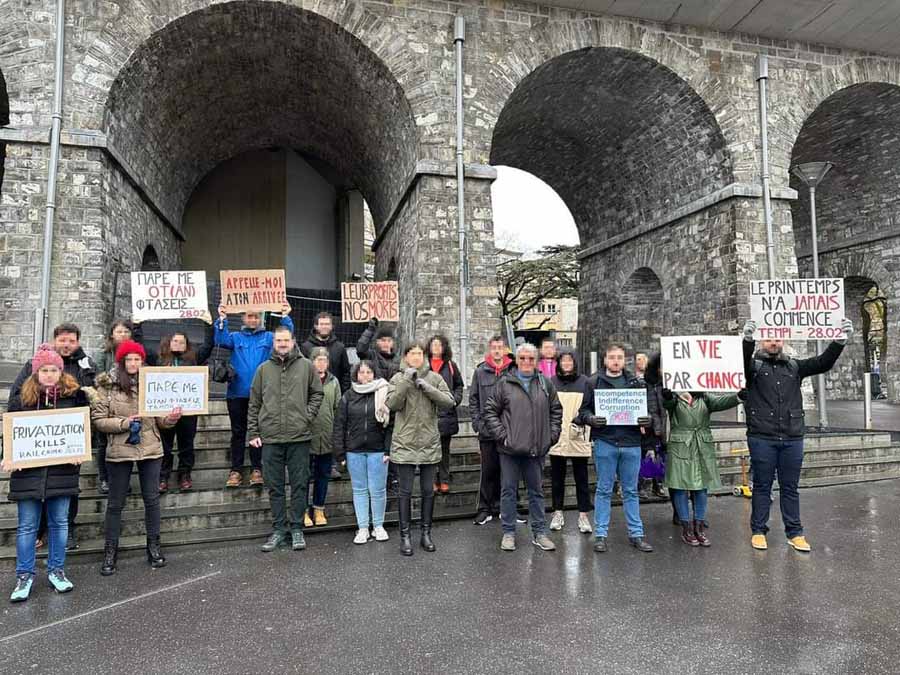
The common denominator in all the calls is that the responsibility for the crime that cost the lives of 57 people and injured a similar number, rests primarily with the austerity policies of the current government. However, the previous ones also bear responsibility, as they pursued neoliberal policies, resulting in drastic cuts in resources, which led to the downgrading and the near collapse of public transport as well as its privatisation. Most of the statements express outrage at the cynical and purely communication-oriented management of the Mitsotakis government, which aims only to minimise electoral costs and damages to its popularity. The need for high quality and safe public transport is also common ground in all the calls.

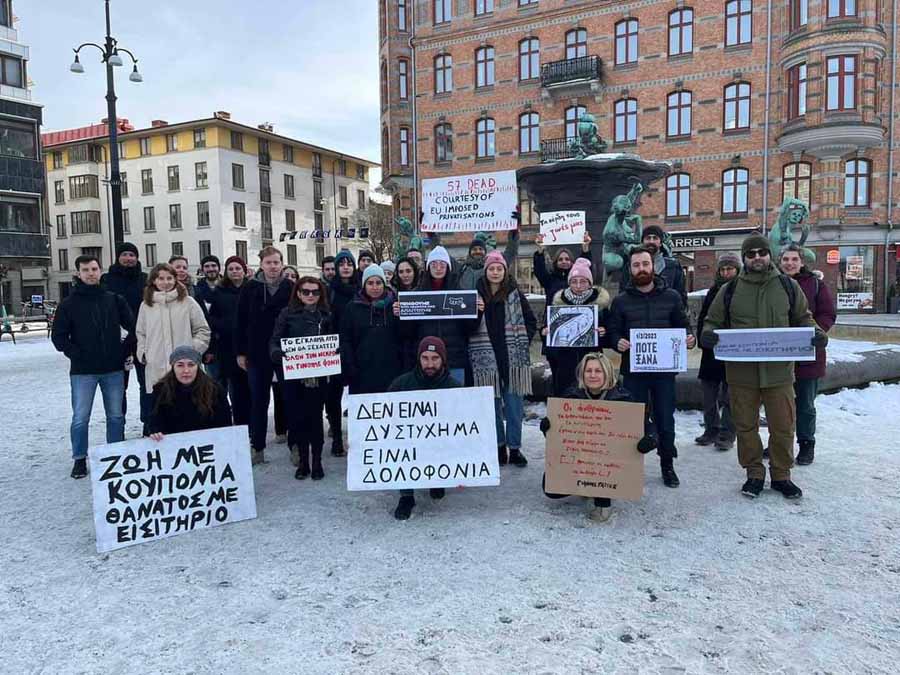
The mobilisations were very successful and reflected the enthusiasm and determination of the movement currently unfolding in Greece. Actions took place in about 15 cities:
London, Birmingham, Edinburgh, Gothenburg, Brussels, The Hague, Utrecht, Paris, Barcelona, Madrid, Lausanne, Padua, Nicosia, Nicosia and Valletta.

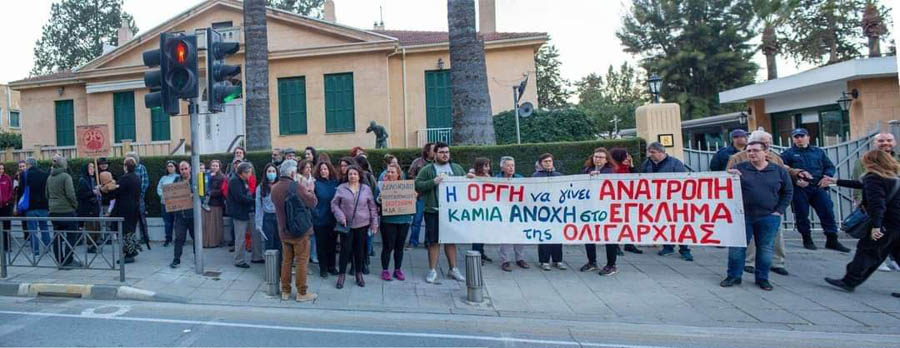
In London 150 people participated in the mobilisation, which was also supported by both Turkish Cypriot collectives and local trade unions. In Brussels about a hundred gathered at the Greek embassy; they stayed for an hour in front of the building and shouted slogans, while holding two banners reading “Mitsotakis’ gang belongs in prison” and “57 dead: courtesy of the EU imposed privatisations”. Participants were of diverse age and social background, which was quite reminiscent of the crowd who had been participating in mobilisations organised in the city during the debt crisis years (2010-2015). It is telling that many of those who responded to the call were immigrants from the last decade.
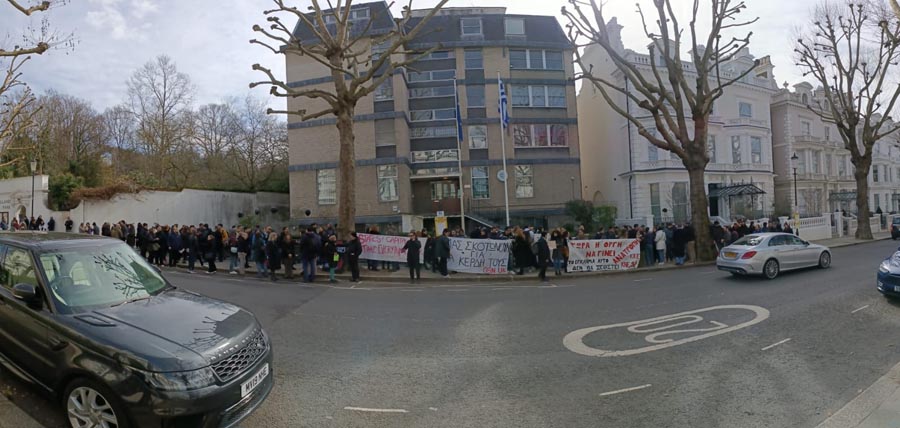
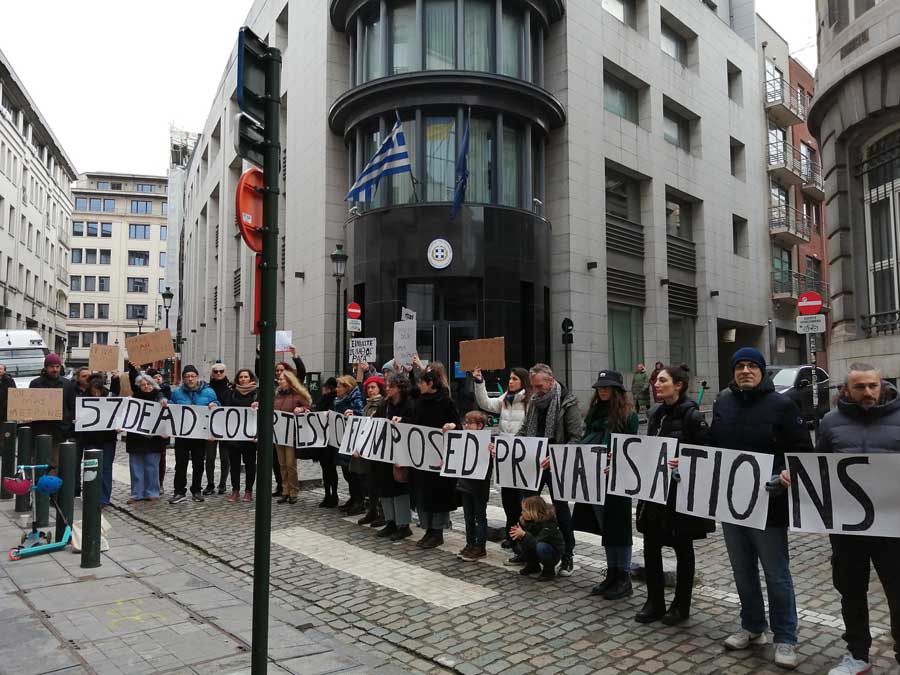
The actions in Barcelona and Nicosia also attracted many people. In Paris, participants in the action joined the march that was taking place afterwards as part of the mobilisations against Macron’s pension bill.
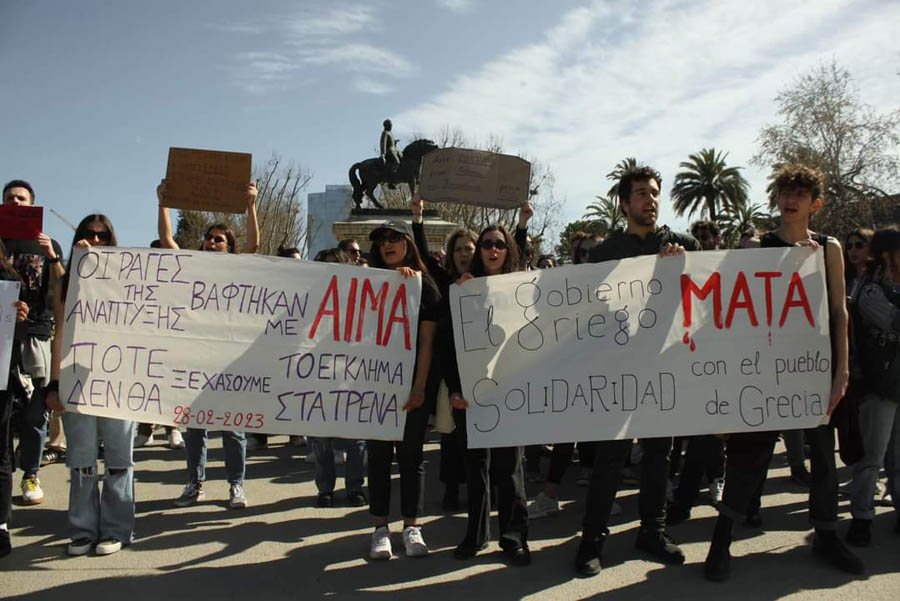
Several groups are considering the continuation of the actions, for at least as long as the Greek people continue to mobilise. There is a general feeling that the current movement is of key importance and has a lot of potential. Most groups are aware of the fact that solidarity actions organised in other countries are an important support and give courage to the people who take to the streets in Greece. At the same time, the problems that have arisen from privatisations, public sector budget cuts, lay-offs and the financial crisis are also real in the countries where the migrants live. Seeking to link the Greek movement with the local ones is only making sense. Neoliberal policies and the economic crisis have no borders and neither should the struggles.
